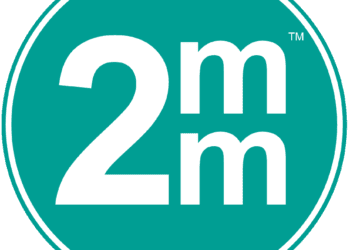Salt intake linked with autoimmune disease
[tabs tab1=”2MM Rundown” tab2= “2MM Full Report”]
[tab]
Image: PD
1. High salt concentrations were found to activate a pathway involved in TH17 cell development in mice.
2. TH17 cells generated within concentrated salt conditions produce pro-inflammatory cytokines associated with autoimmune diseases.
There have been increases in autoimmune disease incidence over the last fifty years with substantial research looking at the genetic basis for such conditions, but less looking at the environmental factors that contribute to these diseases. Published in Nature, researchers were able demonstrate an association between high salt conditions and increased gene expression associated with the development of autoimmune diseases. This study identifies both a mechanism as well as an in vivo analysis to support their argument. Based on these findings, clinical research investigating the associations between salt intake and autoimmune conditions in humans warrants further study.
Click to read the study in Nature
[/tab]
[tab]
Image: PD
1. High salt concentrations were found to activate a pathway involved in TH17 cell development.
2. TH17 cells generated within concentrated salt conditions produce pro-inflammatory cytokines associated with autoimmune diseases.
This [animal] study investigated the effect of a high salt diet on the development of pro-inflammatory cytokines and autoimmune diseases in mice. Researchers found that increased salt concentrations activate the p38/MAPK pathway that generates pathogenic TH17 cells associated with autoimmune conditions. When exposed to high salt concentrations, these immune cells were found to over-express certain genes and pro-inflammatory cytokines leading to the development of autoimmune diseases. A microarray analysis looking at gene expression in groups under high salt conditions compared with no salt found that serum/glucocorticoid –regulated kinase 1 (SGK1) and NFAT5 were significantly up-regulated under salt conditions. Similarly, cytokine IL-2 was also significantly higher in high salt conditions. SGK1 is involved in the TH17 development pathway and IL-2 is a pro-inflammatory cytokine.
In sum: This study provides a unique investigation into the environmental factors contributing to autoimmune conditions. Researchers were able demonstrate an association between high salt conditions and increased gene expression associated with the development of autoimmune diseases. This study identifies both a mechanism as well as an in vivo analysis to support their argument. Based on these findings, clinical research investigating the associations between salt intake and autoimmune conditions in humans warrants further study.
Click to read the study in Nature
By Jordan Anderson and Andrew Bishara
More from this author: Continuity in diabetes provider improves outcomes and decreases costs
© 2013 2minutemedicine.com. All rights reserved. No works may be reproduced without written consent from 2minutemedicine.com. Disclaimer: We present factual information directly from peer reviewed medical journals. No post should be construed as medical advice and is not intended as such by the authors or by 2minutemedicine.com. PLEASE SEE A HEALTHCARE PROVIDER IN YOUR AREA IF YOU SEEK MEDICAL ADVICE OF ANY SORT. Content is produced in accordance with fair use copyrights solely and strictly for the purpose of teaching, news and criticism. No benefit, monetary or otherwise, is realized by any participants or the owner of this domain.
[/tab]
[/tabs]

![No benefit with hydroxychloroquine (Plaquenil) over placebo in Sjogren’s Syndrome [JOQUER Trial]](https://www.2minutemedicine.com/wp-content/uploads/2014/07/Sjogren_syndrome_2-350x250.jpg)



![Deep Brain Stimulation appears safe and may be effective for refractory anorexia nervosa [Physician Comment]](https://www.2minutemedicine.com/wp-content/uploads/2013/03/Putamen1-75x75.jpg)
